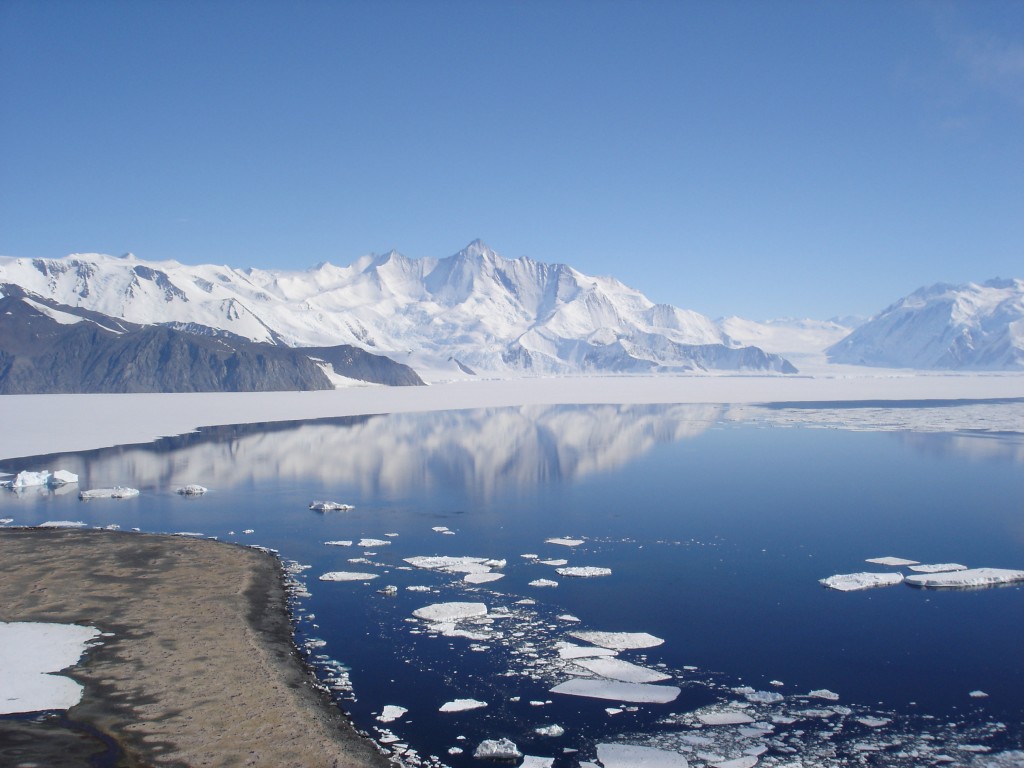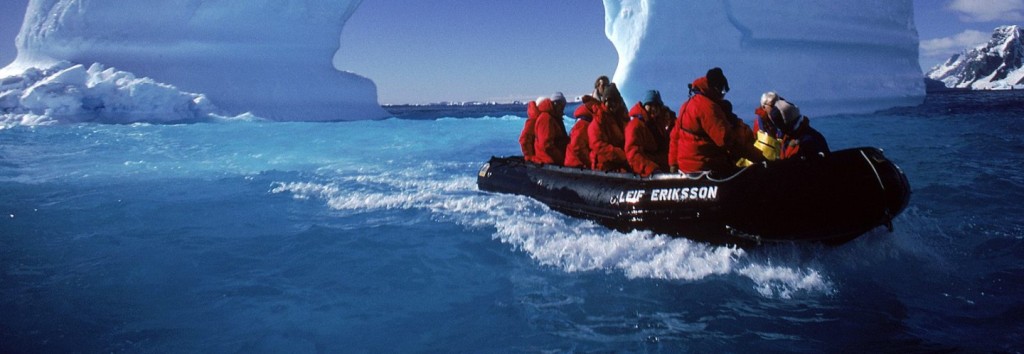On June 23, 1961, representatives of twelve countries from around the world met in Washington, D.C. to take an unprecedented step in environmental legislation. It was on this day that The Antarctic Treaty was ratified. The treaty aimed to preserve Antarctica’s natural environment by prohibiting the extraction of oil and other resources from the region. Additionally, the entire continent, all 5.4 million square miles, would be protected from being claimed by any one nation. At the signing of the treaty, President John F. Kennedy spoke to its significance, saying that he “earnestly believe[d] that the Antarctic Treaty represent[ed] a positive step in the direction of world-wide peace.” However, over fifty years later, the Antarctic discussion is being brought back to the political forefront; the Treaty is set to expire in 2041. And it is up to a scientist, his team, and a group of high school students to save this vital region and its precious environment.

Earlier this year, Robert Swan came to speak with Dr. Church’s Advanced Topics Biology class. A native of the UK, Swan is most widely known for his expedition in 1984, on which he became the first person to walk to both the North and South poles. Over the past thirty years, he has taken on a new role as an advocate for the Antarctic. In addition to traveling the world in an effort to share his stories and message, Swan has led numerous charitable organizations that seek to support the environment. In recent years, Swan has built an educational base (e-base) in Antarctica, where environmentalists can visit in order to conduct research. Perhaps most exciting though, is Swan’s Antarctic Youth Ambassador Programme (AYAP), a new initiative by his organization, 2041, under which students from around the world will have the opportunity to learn from and work with Swan at one of his e-bases. Participants in the 2041 program will publish their findings, and share them with the scientific community upon their return. This year, Swan has invited twenty-nine young environmentalists to work with him. Only one is from the United States; he is also a Fieldston student.
David Fishman, Form V, is an avid advocate for environmental change. Over summer break, David participated in what he referred to as a ‘mini’ survival trip with Outward Bound in the Appalachians of North Carolina. Inspired to do more for the environment, David pursued the opportunity to work with Swan when it arose. He applied to the program, and was accepted. When asked about what he hopes to accomplish on the trip, David said that he’d like to learn about the continent and share his findings with the school community upon his return to Fieldston. However, his work will go far beyond raising awareness. “David will be collecting biological samples to bring back to Fieldston where they will become part of our DNA Fingerprinting Program,” said Dr. Church. “It is quite possible that he will be able to classify previously unidentified species.” David recently sat down with The Fieldston News to share his story.

Fieldston News: What is 2041? Tell us how you got involved in it, and why it’s important.
David Fishman: 2041 is an organization led and founded by a man named Robert Swan. Robert Swan is the first environmentalist to walk from the north to the south pole, and the Antarctic. He’s made it his mission over the past [30], years or so to raise awareness about Antarctica, and how to preserve it. A few months ago, Dr. Church came up to me and said, “There’s this awesome guy, this awesome opportunity. You should apply for this program.” And I applied and got in. I’m one of 29 other students from around the world going; I’m the only student from the United States going on this trip. [Every year], he takes students to his educational base in Antarctica, and teaches them. And the idea is that you go and while there, you learn about the environment, you come back, you share it with your school, and and community at large.
FN: While you’re there, what would your process entail?
DF: I’m flying into Argentina. From Argentina, we’re going to board a ship, and most of the time, we’ll be on the ship, because there are no permanent residences in Antarctica; there are only research bases. [And while on the ship], we’ll be cruising around, and everyday, we’ll hop on zodiacs, these little small boats that go onto the ice. We’ll hike and explore. We’ll be taking ice core samples, we’ll be researching, learning about the species that are there, and the effects we’ve had on them. In 2041, the treaty that prevents companies from exploiting Antarctica [for oil and other natural resources] will expire. Robert wants to get that renewed, and keep Antarctica preserved.
FN: When you return to Fieldston, having had these new experiences, how would you share them?
DF: So, I’m going to write an article for the Fieldston News, and I’ll be organizing an assembly with Robert Swan. He’ll be coming back to Fieldston, and we’ll put together a presentation about what I learned and why this is important.
FN: How has your family felt about this? After all, you will be going to Antarctica for three weeks.
DF: My family is really excited; they’ve been very supportive. A lot of funding for this trip has come from friends and family. By parents themselves donated a little bit, but it’s really been mostly friends, families, and a few companies that have donated. They’re excited, and a little nervous, especially with the recent news of a ship getting stuck in the ice.
FN: That brings us to support. How have you gotten all these people to support you on this journey that you’ll be taking?
DF: Well, I’m not there yet. I’ve probably sent out fifty emails to companies, executives, organizations that donate to this kind of thing. I’ve had some successes and mostly failures. I’ve gotten Morgan Stanley to donate some money to me. I’m working with Makerbot to raise some funding with them, where we could take one of their printers to the antarctic, and use it there to repair things on the ship, and on the environmental bases. But otherwise, it has really been from generous donations from friends and family.
FN: How are you preparing for this expedition, both physically and mentally?
DF: Well, in Antarctica in March, it is the summer. So it’s not the -40˚ temperatures. It’s more like 10˚ up to almost 50˚. It’s much warmer; it’s pretty similar to here now. I’m in pretty good shape. I swim, I run.
FN: Have you had any opportunities to connect with your peers with whom you will be going on the expedition?
DF: Yes, I have. We had a group meeting online a few weeks ago. We introduced ourselves, talked a little bit about where we’re coming from, and why we’re going. There are kids from India, from I believe Pakistan, Iran, really from all over the world. There are kids from China. And there are forty other adult environmentalists who are all coming to do research with Robert.
FN: What role has Dr. Church played throughout this process?
DF: Dr. Church has been incredible. He has been a mentor. He has helped me with the fundraising, with forming a plan in order to raise money for this trip. He originally came up to me and said “This is a great opportunity. At least just apply.” And I did, and it was from his encouragement that I am doing this. He has helped me put together a plan, as I said, for fundraising. When I get back, he will help me present it to the school. And we’ll work together to possibly integrate some of this stuff into the science department’s curriculum, which he’ll definitely be a part of.
FN: When you zoom out, and look at the bigger picture, what is the significance of your expedition and this larger project that Mr. Swan is working on?
DF: Antarctica is a huge continent. It is the last great wilderness, per se, on our planet. It is our last big space of land, and it is absolutely essential that we keep it that way. If the ice in Antarctica were to melt, it would raise the ocean levels by something like two-hundred meters. It’s just ridiculous how much ice is there, and how we affect its warming. But more importantly, it’s sort of like the last frontier, in that it’s our last chance as a civilization to say, “This is a part of our globe that we’re just going to leave untouched. We’re going to leave the species there alone, and let it exist without us meddling.”
FN: David Fishman, saving the world, one continent at a time. Thank you for being with us today.
DF: Yeah, thank you.
David will be blogging about his experiences while in Antarctica. To read about his journey as it happens, visit 2041journeytoantarctica.com.
To watch David’s appearance on NBC’s The Debrief with David Ushery, visit: bit.ly/davidnbc
To read David’s interview with DNAinfo New York, visit: http://goo.gl/S5kHgm





